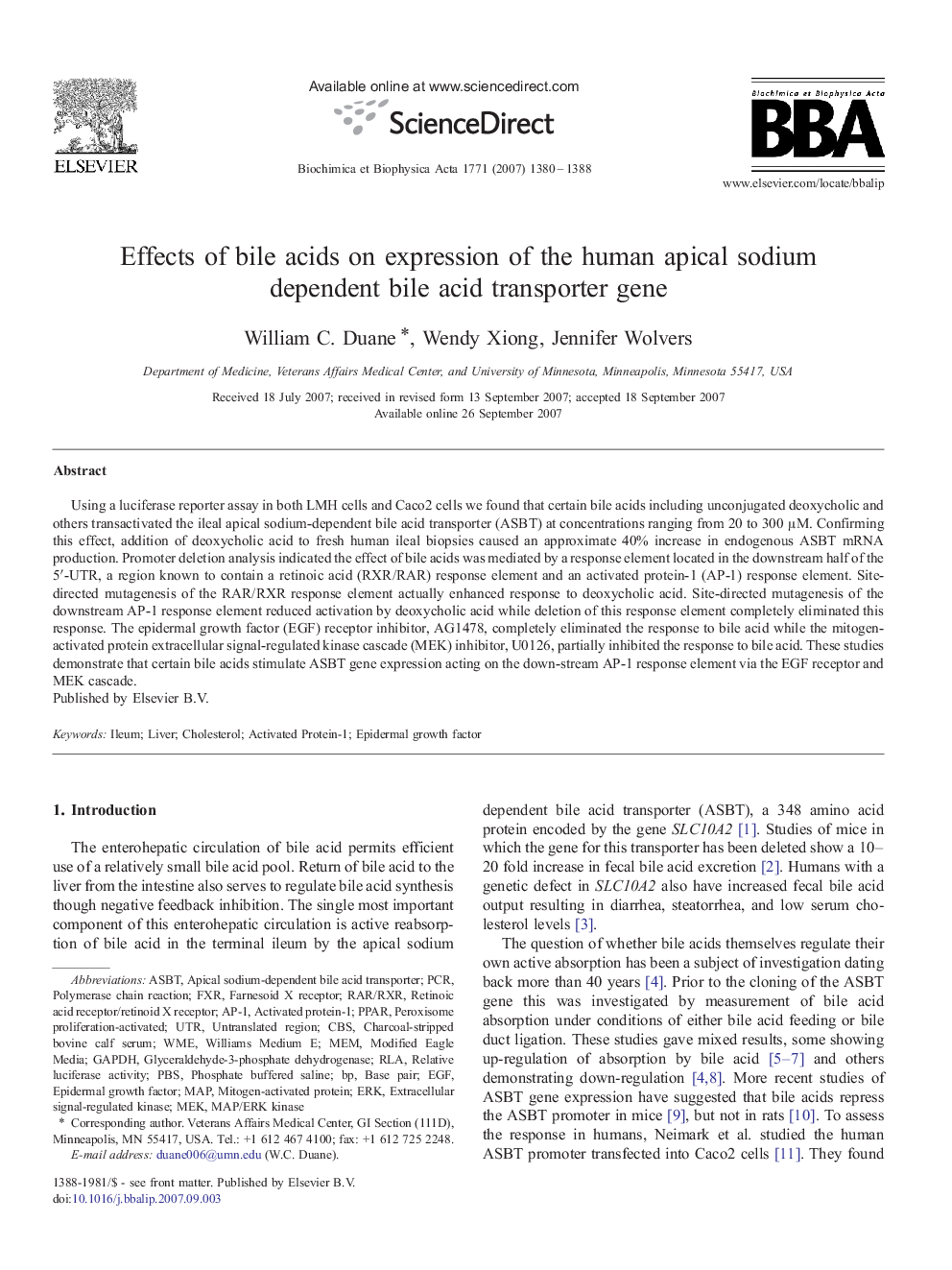| Article ID | Journal | Published Year | Pages | File Type |
|---|---|---|---|---|
| 1950159 | Biochimica et Biophysica Acta (BBA) - Molecular and Cell Biology of Lipids | 2007 | 9 Pages |
Using a luciferase reporter assay in both LMH cells and Caco2 cells we found that certain bile acids including unconjugated deoxycholic and others transactivated the ileal apical sodium-dependent bile acid transporter (ASBT) at concentrations ranging from 20 to 300 μM. Confirming this effect, addition of deoxycholic acid to fresh human ileal biopsies caused an approximate 40% increase in endogenous ASBT mRNA production. Promoter deletion analysis indicated the effect of bile acids was mediated by a response element located in the downstream half of the 5′-UTR, a region known to contain a retinoic acid (RXR/RAR) response element and an activated protein-1 (AP-1) response element. Site-directed mutagenesis of the RAR/RXR response element actually enhanced response to deoxycholic acid. Site-directed mutagenesis of the downstream AP-1 response element reduced activation by deoxycholic acid while deletion of this response element completely eliminated this response. The epidermal growth factor (EGF) receptor inhibitor, AG1478, completely eliminated the response to bile acid while the mitogen-activated protein extracellular signal-regulated kinase cascade (MEK) inhibitor, U0126, partially inhibited the response to bile acid. These studies demonstrate that certain bile acids stimulate ASBT gene expression acting on the down-stream AP-1 response element via the EGF receptor and MEK cascade.
